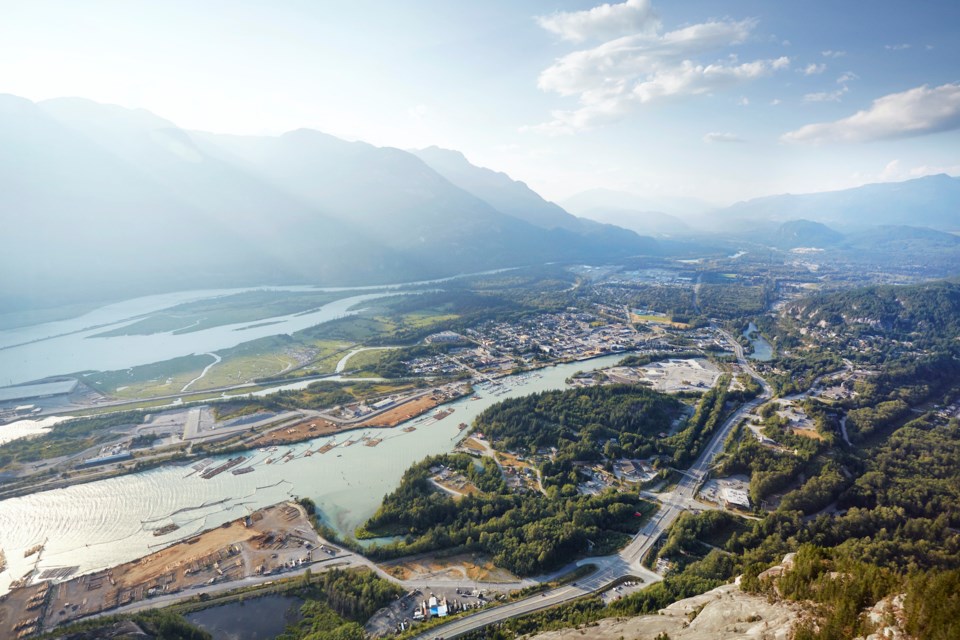The B.C. government is expanding its speculation and vacancy tax to smaller municipalities, including North Cowichan, Duncan, Ladysmith, Lake Cowichan, Lions Bay and Squamish.
B.C. Minister of Finance Selina Robinson announced the tax’s expansion on the back of a government-commissioned report that estimates about 20,000 condo units have been rented out as a result of the tax’s inception in 2018 in major urban centres, namely the Lower Mainland.
The speculation tax is currently in effect in municipalities in the Lower Mainland and capital region, along with Nanaimo, Lantzville, Kelowna and West Kelowna.
"In 2018, we implemented the landmark speculation and vacancy tax that targeted speculators and quickly helped turn thousands of empty units into homes for people," said Robinson July 20 in Vancouver. "After careful consideration and listening to people and community leaders on speculative real estate concerns in their communities, we're expanding the tax to these additional areas that are facing intense housing pressures."
The tax, or SVT, is designed to incentivize renting out an otherwise empty unit — typically a second home — to increase supply of housing. It also takes aim at taxing satellite families who earn income overseas, in order to curtail demand on housing from income derived outside the province.
Over the first three years of the tax, the SVT has generated $231 million for affordable housing, the ministry claims, by charging Canadian citizens or permanent residents who leave their homes vacant 0.5% of their property’s value and foreign owners and satellite families 2% of their property’s value.
The June 2022 report, written by University of B.C. economics professor Tsur Somerville and real estate consultant Jake Wetzle, states a review of rates should take place in one year.
The report outlined steps to expand the tax given some of the findings the ministry found to be positive.
“Though there may not be a high instance of foreign ownership or vacant properties in more rural areas, expanding the SVT will provide a disincentive for future speculative investment that can lead to further demand and increases in housing prices,” stated the report, which adds, “the tax should apply in municipalities that are in close proximity if it’s reasonable to live in one municipality and work in the other.”
As such, the newly targeted Vancouver Island communities are close to Nanaimo and Victoria, whereas Lions Bay and Squamish sit just north of the Lower Mainland.
The report also called for an expansion where communities asked for it.
Squamish Mayor Karen Elliott was part of the government’s announcement Wednesday.
“Our citizens want to see that we are addressing both the supply side, as well as advocating for demand-side policies that help make housing more attainable. We support a collaborative approach to delivering the homes we need. Squamish is proud to be a partner in the province's efforts to create affordable housing, strategically develop private property, and implement solutions like the speculation and vacancy tax,” said Elliott in a written statement.
B.C. mayors have asked that revenue collected is disbursed proportionately in each community for social housing projects.
The expansion will begin January 2023, meaning residential property owners in the expansion communities will declare and claim an exemption for the first time in January 2024.
Exemptions are available for primary residences, properties with a long-term tenant (six months) and a number of other special circumstances, such as a home being temporarily vacant due to divorce, a death or a property that is under development. The ministry anticipates that more than 99% of British Columbians will continue to be exempt from paying the tax.
In 2020, 2,682 B.C. residents paid the tax whereas 1,087 foreign owners and 977 satellite families did so. Over three years foreign owners and satellite families accounted for the bulk of revenue ($156.3 million).
BC Green Party leader Sonia Furstenau, MLA for Cowichan Valley, stated she favoured the expansion: “Addressing this crisis requires a variety of policies targeted at both supply and demand, and the data on the impact of this tax so far is encouraging.”
Furstenau is among a handful of MLAs who owns three residential properties, although just one falls in an SVT zone.
Adam Olsen, MLA for Saanich North and the Islands, said he was "deeply disappointed that the Southern Gulf Islands were not included."
The Greens said the BC NDP needs to now address real estate investment trusts.
In 2020, Research Co. found 76% of British Columbians favoured the tax and wanted it expanded.
However, the tax has been panned by the BC Liberals, whose leader Kevin Falcon, a former executive for Anthem Properties Group subsidiary Anthem Capital, claims a review of housing-related taxes will take place under a new BC Liberal government.



